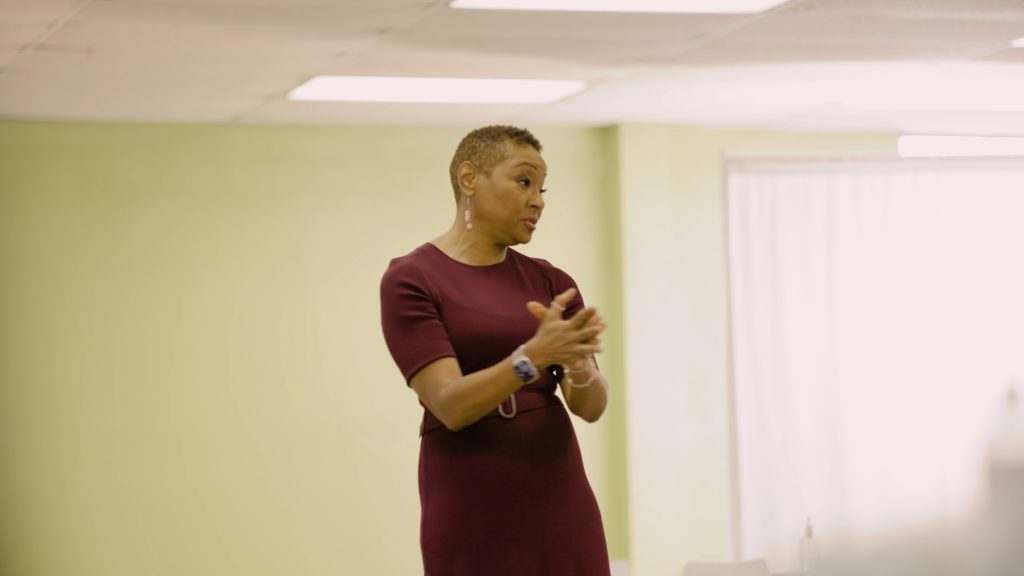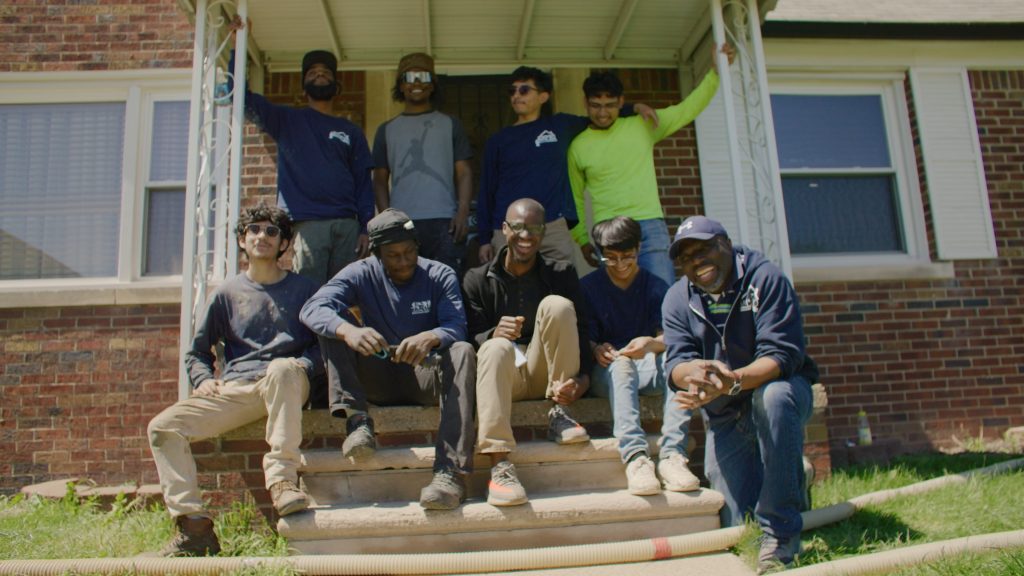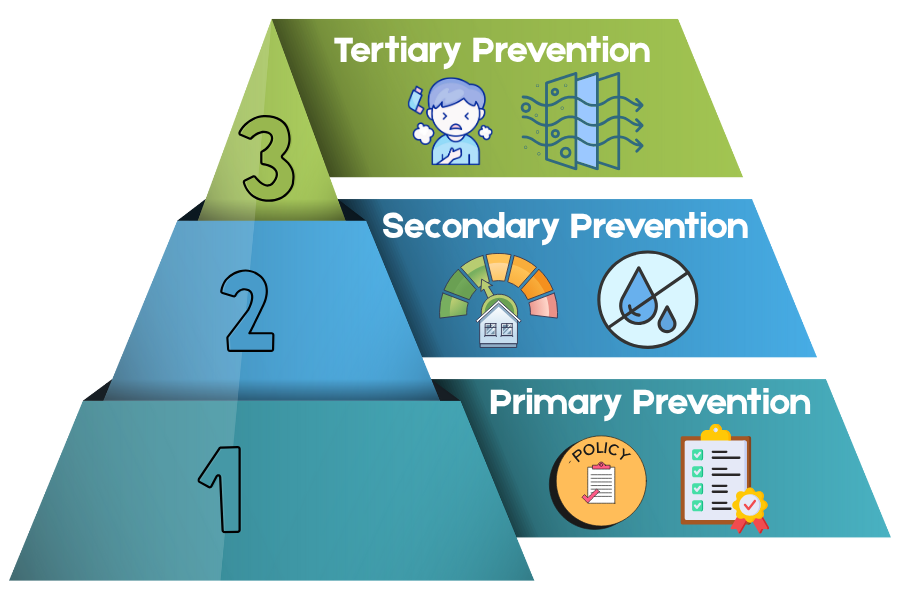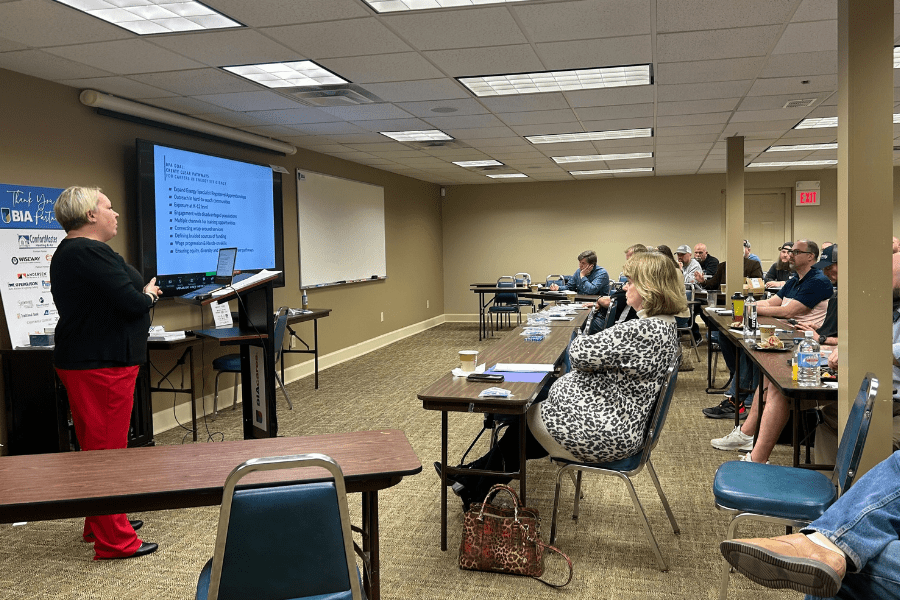Aug 14, 2024
This Black, Woman-Owned Company in Detroit is Thriving Thanks in Part to Strong Climate Policy
The success of Walker-Miller Energy Services is a testament to the Inflation Reduction Act, Michigan’s Clean Energy Laws.
By: Courtney Bourgoin
In a city that has gone through decades of disinvestment and change, Walker-Miller Energy Services is rebuilding what “home” looks like for residents in Detroit, Michigan. One of the largest Black, woman-owned energy efficiency companies in the United States, Walker-Miller is a model for people-centered investment in the growing clean energy economy. A trailblazer in home upgrades, weatherization, and electrification, the company also leads one of the most successful energy efficiency workforce development programs in the country—training a suite of new workers to upgrade homes and help residents slash their energy costs in the Detroit area.
Like hundreds of others who trained in workforce programs implemented by Walker-Miller, graduate Alijah Thomas excelled and eventually transitioned to a full-time, high-wage role. Now, a home energy assessor, Alijah works to upgrade and improve the efficiency of homes in his hometown of Detroit.
For Alijah, this isn’t just a job—the workforce development program changed his life. He’s earning more than he’s ever made and doing what he loves: making an impact on those around him by improving the quality of life, homes, and health in his own community.
Walker-Miller’s noble business model is thriving thanks to pivotal policies like the Inflation Reduction Act (IRA) and Michigan’s recent package of clean energy legislation. The IRA represents the most significant investment in clean energy and energy efficiency in the nation’s history. And Michigan’s new laws give that investment an added boost by setting strong targets to ramp up the use of clean energy and improve energy efficiency in the state. Michigan’s new laws were designed to leverage IRA funding— ensuring that equitable businesses like Walker-Miller can expand their impactful work and there are more good-paying jobs for people like Alijah.
Strong clean energy policies at the federal and state levels are accelerating Walker-Miller’s efforts to empower communities, especially in Detroit and surrounding areas, through cost savings, job opportunities, and building equitable economic prosperity in the region.
Growing a Diverse Workforce for Our Clean Energy Economy
Walker-Miller’s workforce development program focuses on training a diverse workforce of contractors to upgrade and retrofit homes in Detroit to lower residents’ energy bills and make homes more comfortable, safer, and healthier.

For Walker-Miller’s founder and Chief Executive Officer, Carla Walker-Miller, the program is not just about training for temporary roles; it is about transforming lives. By equipping more people, especially folks in underrepresented communities, with skills in residential energy efficiency technologies, the company ensures its trainees can secure full-time, long-term positions with competitive wages.
Importantly, Walker-Miller prioritizes recruiting from within the communities it serves, particularly targeting areas of Detroit that have faced historical job loss and disinvestment.
Walker-Miller’s approach seamlessly aligns with the goals of the IRA, which focuses on expanding clean energy and energy efficiency solutions while prioritizing strong labor standards and improving diversity in the clean energy workforce. The Energy Efficiency Academy is equipping a skilled, representative labor workforce to meet the growing demands for more efficient, healthier homes—all without imposing the burden of crippling student debt and expensive training on their cohorts.
The Inflation Reduction Act: A Catalyst for Home Efficiency, Comfort, and Health
The IRA’s energy efficiency incentives are beginning to directly benefit Walker-Miller’s operations. For one, the Energy Efficiency Home Improvement Credit will soon provide the largest amount of tax incentives ever for energy-efficiency upgrades in residential homes across the country. Similarly, the Home Energy Rebate program offers direct rebates to incentivize energy-efficient home upgrades and appliance purchases. This will continue to drive up demand for Walker-Miller’s services as more homeowners seek to take advantage of these incentives to lower their energy bills.
Since the IRA provides significant funding to do this work, the law also incentivizes local and state governments to adopt more efficient building codes. This policy could significantly expand Walker-Miller’s work in making homes more energy-efficient as stronger targets are established.
Importantly, the IRA places a strong emphasis on building a clean energy workforce that is equitable and diverse. Key programs such as the State-Based Home Energy Efficiency Contractor Training Grants (CTG) Program and tax credits for apprenticeship programs are central to this mission. The CTG program provides funding for contractor education and mandates the recruitment of a diverse and qualified workforce to implement clean energy improvements. Walker-Miller’s established training programs are well-positioned to capitalize on this funding.
In addition, the IRA offers tax credits to employers who develop and maintain apprenticeship programs in clean energy industries. These credits, coupled with a prevailing wage requirement, aim to expand and diversify the workforce while ensuring fair wages. Walker-Miller stands to benefit significantly from these incentives as it already runs apprenticeship programs focused on diversity and hands-on training. Together, these initiatives underscore the IRA’s commitment to fostering a skilled, inclusive workforce ready to meet the demands of the growing clean energy sector. Walker-Miller is a shining example of this work.
Finally, the Justice40 initiative ensures that 40 percent of the benefits of federal clean energy investments flow to disadvantaged communities just like the ones Walker-Miller prides itself on serving. They have experienced an uptick in jobs both as a Black-owned business and because they have built a skilled workforce that represents people from these very communities—and who are best equipped to complete the projects in them.

Michigan’s Clean Energy and Climate Action Package: Legislative Support in Michigan
On top of federal support, Walker-Miller’s efforts are further bolstered by Michigan’s Clean Energy and Climate Action Package, signed by Governor Gretchen Whitmer in November 2023. This historic legislation makes Michigan a national leader in clean energy and climate action, promising to lower household utility costs, create tens of thousands of good-paying jobs, and protect Michigan’s air, water, and public health.
Improving Energy Efficiency
As part of its nation-leading clean energy legislation, Michigan increased its statewide energy efficiency and waste reduction targets to drive down costs for families and small businesses. These goals will enable more Michiganders to upgrade their homes with energy-efficient technologies, ensuring reliable power and lower utility bills.
In addition, Michigan’s new legislation directs utility companies to allot at least a quarter of their energy efficiency program spending to low-income communities that spend a disproportionate percentage of household income on electricity costs. These increased targets will accelerate demand for Walker-Miller’s work, as a company that installs energy efficiency retrofits and upgrades homes, especially in places with high energy burdens.
100 Percent Clean Energy Standard
In 2023, Michigan established a 100 percent clean energy standard for the state to achieve by 2040. This ambitious target will drive the demand for energy efficiency improvements as electric utilities adjust their energy resource mixes—directly creating opportunities for companies, like Walker-Miller, at the forefront of this work.
A State Office to Support Workers and Communities
A new statewide office, the Office of Worker and Community Economic Transition, will work with Michigan’s labor force and communities to maximize the benefits of the good-paying jobs created by the clean energy transition. Walker-Miller, already leading much of the work to create good-paying clean energy jobs and career transition pathways in the Detroit area, will have a pivotal role to play in scaling these practices and their success at the state level—in part by expanding their own workforce training programs.
Building a Resilient, Inclusive Future: Walker-Miller’s Success Showcases Power of Climate Policy
Walker-Miller’s story is a story of our clean energy future—one that centers workers and families, advances justice, and lifts up entire communities. It is a byproduct of a bold, uncompromising vision and hard-won climate and clean energy policies. Ultimately, it’s driving real-life change by training a new generation of clean energy workers, delivering good-paying jobs, and making homes safer, healthier, and more affordable.
By focusing on energy efficiency, electrification, and workforce development, Walker-Miller is not only contributing to meaningful climate progress but also fostering economic resilience in communities that need it most. The IRA and Michigan’s new state laws are instrumental in this journey—providing the financial and legislative support necessary to scale the work folks like Alijah are doing and Walker-Miller’s impact at large.
As these policies continue to unfold and unleash massive impact across the country, Walker-Miller’s programs are set to expand, bringing more jobs, higher wages, and greater energy efficiency to Michigan’s communities. It’s a powerful example of how policy and practice can come together to build a more prosperous, healthier, and resilient future for cities like Detroit and beyond.
This article was republished with permission. It originally appeared on the Evergreen Action blog.






